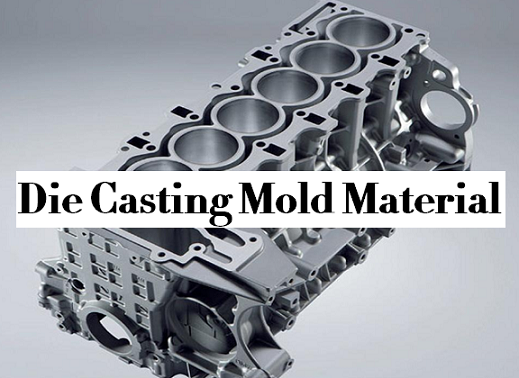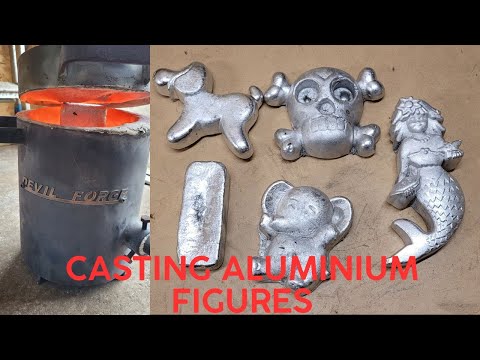Everything about Stahl Specialty Company
Everything about Stahl Specialty Company
Blog Article
Indicators on Stahl Specialty Company You Should Know
Table of ContentsThe Single Strategy To Use For Stahl Specialty CompanySome Known Facts About Stahl Specialty Company.Not known Facts About Stahl Specialty CompanyStahl Specialty Company Things To Know Before You BuyStahl Specialty Company Things To Know Before You BuyThe Greatest Guide To Stahl Specialty Company

If you're developing a steel product, you've likely taken into consideration using aluminum as the base product. Pure light weight aluminum has limited applications, so it is commonly combined with other aspects, such as silicon, magnesium, and manganese to create alloys.
Different aspects and quantities generate a wide range of preferable physical and chemical residential or commercial properties. And the Light weight aluminum Organization (AA), based in The United States and copyright, has created specs that manage light weight aluminum alloys' composition, homes, and language. There are 2 kinds of aluminum alloys wrought and cast. Factory workers develop these alloy kinds in various means, which dramatically impacts their characteristics.
The Definitive Guide for Stahl Specialty Company
Cast aluminum alloys are made by thawing pure aluminum and incorporating it with various other metals while in liquid form. The mix is put into a sand, pass away, or investment mold and mildew.

As an example, 160.0 represents a cast with a minimum of 99.60% aluminum. The 4th figure, which follows the decimal factor, defines if the alloy is a spreading (xxx. 0) or an ingot (xxx. 1). Wrought light weight aluminum alloys also start by combining molten aluminum with other metals. As opposed to cast alloys, however, they are formed into their final shape through processes such as extrusion, rolling, and flexing after the steel has actually strengthened right into billets or ingots.
There are lots of minor differences in between functioned and cast light weight aluminum alloys, such as that cast alloys can contain more significant quantities of various other metals than functioned alloys. The most significant distinction in between these alloys is the fabrication process through which they will certainly go to deliver the last item. Apart from some surface area treatments, cast alloys will leave their mold and mildew in virtually the precise strong kind desired, whereas wrought alloys will certainly undertake several modifications while in their solid state.
If you think that a wrought alloy might be the most effective for your job, have a look at some of our posts that describe more concerning certain functioned alloys, such as Alloy 6061 and Alloy 6063. On the various other hand, if you believe a cast alloy would be better for you, you can find out a lot more concerning some actors alloys in our Alloy 380 and Alloy 383 write-ups (coming quickly).
The Best Guide To Stahl Specialty Company
When picking a light weight aluminum shop for your production requirements, it's vital to study several elements. Among the most essential elements to consider is the experience and capability of the factory. Foundry. Picking a shop who has the appropriate expertise of the light weight aluminum casting procedure, and the profile to show for it, aids to have a successful result for your job
Having the experience and market expertise to craft your spreadings for ideal manufacturing and high quality end results will certainly enhance the task. Making light weight aluminum castings calls for a complicated set of processes to achieve the best results. When picking a new aluminum foundry to companion with, guarantee they have substantial market experience and are experienced regarding all aspects of the aluminum spreading procedure: style, production, product evaluation, and item testing.
The foundry needs to additionally have a tested record of delivering extraordinary products that fulfill or surpass client expectations. Quality assurance needs to likewise be at the top of your checklist when selecting an aluminum shop. By dealing with a qualified shop who follows the criteria for high quality control, you can safeguard the honesty of your item and ensure it fulfills your specs.
By picking a business who offers solutions that satisfy or exceed your item requirements, you can be certain that your project will certainly be completed with miraculous precision and performance. Certain light weight aluminum foundries concentrate on particular kinds of producing procedures or casting techniques. Various parts need different production strategies to cast aluminum, such as sand spreading or die casting.
Get This Report on Stahl Specialty Company
Pass away spreading is the name given to the procedure of developing complicated metal parts via use of molds of the part, likewise known as passes away. It creates more parts than any type of other procedure, with a high degree of accuracy and repeatability. There are 3 sub-processes that fall under the group of die casting: gravity pass away casting (or permanent mold and mildew casting), low-pressure die spreading and high-pressure die spreading.
No matter of the sub-process, the die casting process can be damaged down into 6 steps. After the pureness of the alloy is examined, dies are created. To prepare the passes away for casting, it is very important that the passes away are clean, to make sure that no deposit from previous productions continue to be. After cleaning, the ejection lubrication is put on the die to make certain a their website smooth launch.
Getting The Stahl Specialty Company To Work
The pure steel, also referred to as ingot, is included to the heater and maintained the molten temperature level of the steel, which is then moved to the shot chamber and injected into the die. The pressure is then maintained as the steel strengthens. When the metal solidifies, the cooling process starts.
(https://www.pageorama.com/?p=stahlspecialc)
The thicker the wall of the part, the longer the cooling time due to the amount of indoor steel that likewise requires to cool. After the component is completely cooled down, the die halves open and an ejection system presses the part out. Following the ejection, the die is shut for the next injection cycle.
The flash is the extra material that is cast during the process. Deburring removes the smaller pieces, called burrs, after the trimming process.
The 5-Minute Rule for Stahl Specialty Company

Zinc is one of the most secondhand alloys for die spreading due to its reduced cost of raw materials. Its corrosion resistance likewise enables the elements to be lengthy long-term, and it is one of the extra castable alloys due to its reduced melting factor.
As mentioned, this alloy is one of the most typically utilized, yet produces will, at times, select aluminum over zinc because of aluminum's manufacturing advantages. Aluminum is highly economical and one of the extra versatile alloys. Aluminum is used for a number of various items and sectors anything from home window frameworks to aerospace materials.
Report this page